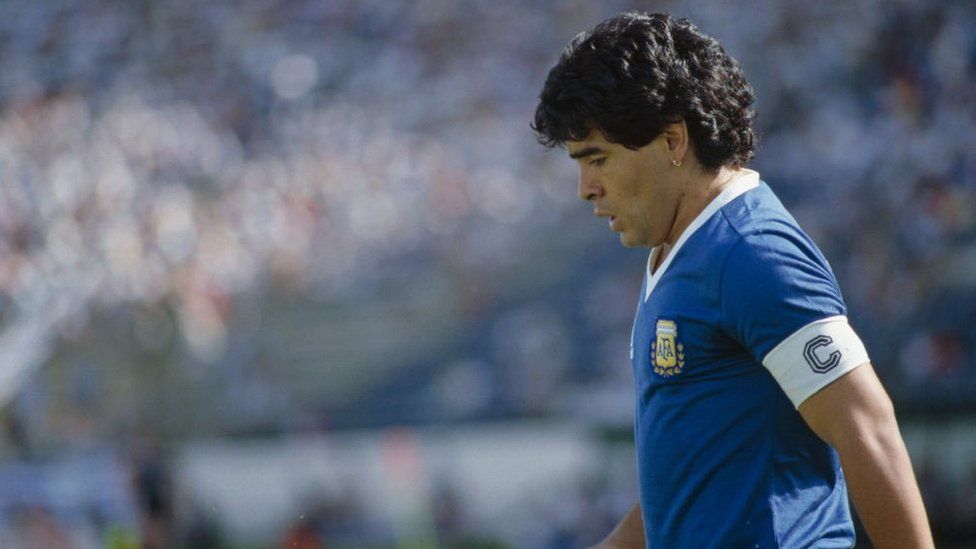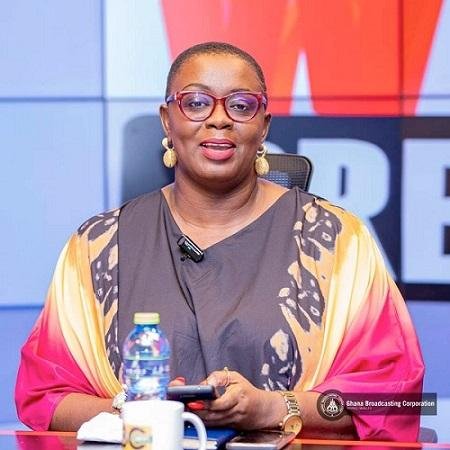Hot!
Maradona: Medical staff to face trial for football legend’s death

Eight medical personnel are to stand trial accused of criminal negligence in the death of legendary Argentinian footballer Diego Maradona.
A judge has ordered a culpable homicide trial after a medical panel found Maradona’s treatment was rife with “deficiencies and irregularities”.
Maradona died in November 2020 of a heart attack in Buenos Aires, aged 60.
He had been recovering at home from surgery on a brain blood clot earlier that month.
A few days after his death Argentine prosecutors launched an investigation into the doctors and nurses involved in his care.
Last year, the panel of 20 experts appointed to examine his death found Maradona’s medical team acted in an “inappropriate, deficient and reckless manner”.
It also concluded that the footballer “would have had a better chance of survival” with adequate treatment in an appropriate medical facility, according to the court ruling.
Among those facing charges are Maradona’s neurosurgeon and personal doctor, Leopoldo Luque, a psychiatrist and psychologist, two doctors, two nurses and their boss. They have all denied responsibility for his death.
All eight will be tried on a legal definition of homicide based on negligence committed in the knowledge that it may lead to a person’s death.
The crime can hold a sentence of eight to 25 years in prison, according to Argentina’s penal code. A date for the trial is yet to be set.
Mario Baudry, a lawyer for one of Maradona’s sons, told Reuters that the football legend was “in a situation of helplessness” by the time of his death.
“As soon as I saw the cause, I said it was homicide. I fought for a long time and here we are, with this stage completed,” he said.
The legal proceedings were prompted by a complaint filed by two of Maradona’s daughters. They raised concerns about their father’s treatment after the brain operation.
In an emotional press conference in November 2020, Dr Luque cried, saying he had done all he could to save the life of a friend.
At one point, the doctor shot back at reporters: “You want to know what I am responsible for? For having loved him, for having taken care of him, for having extended his life, for having improved it to the end.”
The doctor said he had done “everything he could, up to the impossible”.
Diego Maradona is largely considered to be one of the greatest footballers to ever play the game. He was captain when Argentina won the 1986 World Cup, scoring the famous ‘Hand of God’ goal against England in the quarter-finals.
During the second half of his career, Maradona struggled with cocaine addiction and was banned for 15 months after testing positive for the drug in 1991.
The news of his death threw the football world – and his home country of Argentina – into deep mourning, with many thousands of people queuing for hours to walk by his coffin at the presidential palace in Buenos Aires.
Source: BBC
Hot!
Let’s reintroduce Cultural Studies to complement educational reforms — Tourism Minister

Madam Abla Dzifa Gomashie, the Minister of Tourism, Culture and Creative Arts, has emphasised the importance of reintroducing Cultural Studies in schools as part of Ghana’s broader educational reform agenda.
She said Cultural Studies would complement existing efforts to reposition Science, Technology, Engineering and Mathematics (STEM) and Technical Vocational Education and Training (TVET) to promote digital literacy and expand Creative Arts education.
Speaking at the 2025 Homowo Festival of the people of Ningo-Prampram, held on the theme: “Education: The Best Legacy for our Children,” Madam Gomashie said cultural education was critical to national identity and development.
She noted that the festival’s theme aligned with the Government’s vision to transform education in Ghana and encouraged the youth to embrace it not only as a means of personal development but also as a way of preserving traditional values.
These values, including patience, wisdom, and hard work, were at the core of the Homowo celebration, the Minister said.
“Cultural festivals like Homowo are vital instruments for strengthening cultural identity, preserving historical memory, and fostering national unity. Additionally, festivals serve as platforms for educating the youth through storytelling, music, dance, and other traditional practices, while also providing opportunities for community engagement.”
Madam Gomashie highlighted the strong foundation that Ghana’s tourism was built on, which included culture, traditions, and the creative industry, collectively contributing to over GH¢4.8 billion to the economy.
“Festivals give tourists reasons to visit our country. Therefore, with the right infrastructure and the development of all the domains, the sector can do more than what has been recorded,” she added.
Mr Sam Nartey George, the Member of Parliament for Ningo-Prampram and Minister of Communication, Digital Technology and Innovation, commended the community for their vibrant participation in the festival. He announced plans for the construction of a new nursing training school in Ningo, aimed at expanding access to healthcare education in the area.
Nene Osroagbo Djangmah XII, Paramount Chief of Great Ningo Traditional Area; King Dr Tackie Teiko Tsuru II, Ga Mantse; Nene Tetteh Wakah III, Paramount Chief of the Prampram Traditional Area; Prof. Odaifio Welentsi III, Paramount Chief of the Nungua Traditional Area; Naana Dugbakuwor Dugba II, Paramount Queen Mother of Great Ningo; and Mr. Elvis Afriyie Ankrah, Special Envoy on Religion and Inter-Faith Affairs, who represented the Chief of Staff, were among dignitaries at the festival. -GNA
Hot!
Focus on more pressing issues like Galamsey, not hate speech – Ellen Ama Daaku to Mahama

An aide to former Vice President Dr. Mahamudu Bawumia,Ellen Ama Daaku has advised President John Dramani Mahama to shift his attention from social media hate speech to more urgent national issues such as illegal mining.
Speaking in an interview, she noted that the President’s recent comments about tracking the IP addresses of people who spread hate speech were unnecessary.
According to her, President Mahama must first define what he considers to be hate speech before seeking to punish people for it.
Ms. Daaku argued that the President himself had benefitted from hate speech and social media attacks in the past when he was in opposition.
She said even during his time in government, he described his opponents and their tribesmen in unpalatable terms, which later drew complaints from former President Nana Akufo-Addo to the Catholic Bishops’ Conference.
She stressed that harsh criticism of leaders on social media should not automatically be considered hate speech, adding that former leaders, including former President Nana Akufo-Addo had all been subjected to it.
“He is only feeling what Nana Akufo-Addo went through for eight years,” she remarked.
While acknowledging the need to regulate misconduct online, Ms. Daaku insisted that going after social media activists should not be a priority.
She noted that many political activists, including herself, had been insulted and attacked online but never called for arrests.
She concluded that President Mahama should focus his energy on solving pressing problems such as galamsey and the economy instead of concentrating on critics on social media.
By: Jacob Aggrey






